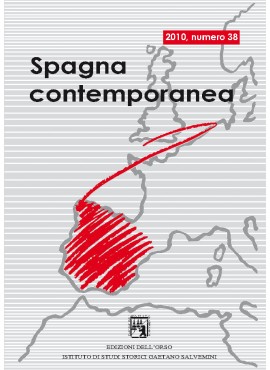Rapporto dell’azione cattolica sul comunismo in Spagna e uso ecclesiastico del presunto complotto comunista del luglio 1936, alla luce della nuova documentazione vaticana
Keywords:
Spain, Communism, 1936 military uprising, Holy Seat, Isidro GomáAbstract
Report of the Catholic Action on Communism in Spain and how the Church exploited the alleged Communist plot of July 1936 in the light of the new Vatican documents
A few days after the alzamiento, the rebel soldiers started disseminating the idea that they had prevented a Communist coup planned for the following days, referring to some documents they had in their hands. It was the primate cardinal Isidro Gomá who most exploited the argument of the Communist plot. As the spurious and non-secret character of these documents was known since the Sixties, even the Francoist propaganda stopped arguing that they were genuine. Some questions, however, remained unanswered: why is there no reference to this threat in the early proclamations of the rebels? Why was it included only a dozen days later? And in particular, why did Spanish bishops insist on using them? According to the Vatican documents, the Holy Seat did not attach special significance to them, possibly because the Catholic Action had sent it a detailed report on Communism in Spain — which is disclosed in this article for the first time — where no revolutionary initiative was expected for summer 1936. In response to these questions, the article posits that the belated justification of the preventive uprising (and the use of spurious documents) became necessary because of the unexpected outcome of the coup. In other words, its failure or partial success, which in turn brought about the outbreak of the Civil war and a parallel revolutionary process, encouraged the military to adopt the religious interpretation of the conflict provided by the bishops (as a result of the violent anti-religious and anti-clerical persecutions). This interpretation gave a decisive theological and moral legitimacy to the uprising. Compared to the evil embodied by the Republican chaos and laicization, the military uprising was an extreme remedy, a “lesser evil”. But a bloody civil war as a result of the failed military coup was clearly a bigger evil than the one the rebels wanted to oppose. That is why the political situation of the Republic was further charged with the thesis of the Communist plot in order to make the remedy proportionate to the evil.
Downloads
Published
Issue
Section
License
Copyright (c) 2010 Istituto di studi storici Gaetano Salvemini, Torino

This work is licensed under a Creative Commons Attribution-NonCommercial-NoDerivatives 4.0 International License.



